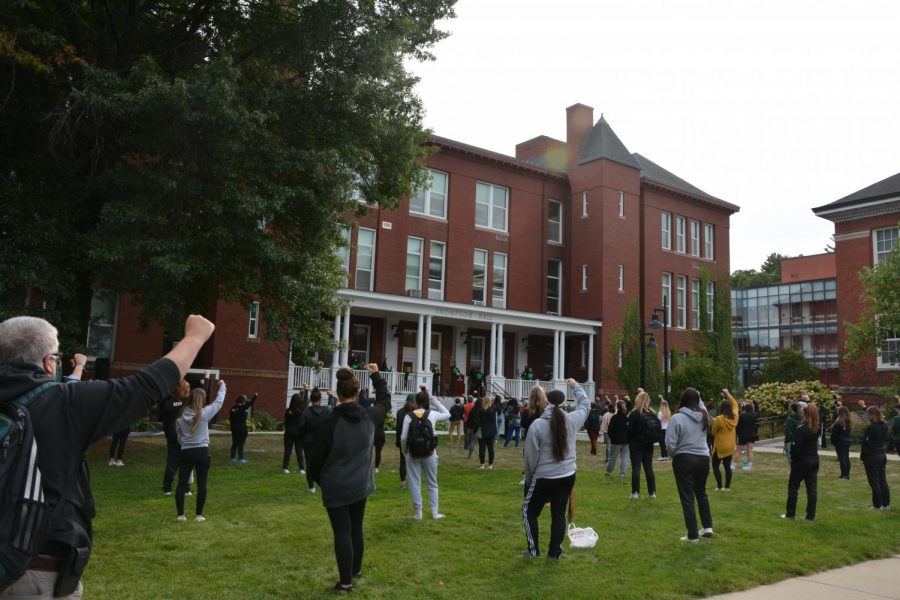Fitchburg State Announces Bias Incident Response Team
April 6, 2021
-Kris Madden
An increase in race-related incidents has been reported nationwide recently, due in part to white supremacist groups emboldened by imagery and symbolism carried by the domestic terrorists that stormed the US Capitol on Jan. 6. Asian American hate crimes have increased by almost 150% since the 2020 outbreak of the coronavirus disease due in part to former President Donald Trump’s illegitimate claims that China was responsible for the COVID-19 outbreak. The FBI has reported that nearly 20% of hate crimes reported in the United States are motivated by anti-LGBTQ bias.
Though not every bias-related incident is a crime, a criminal act is not a prerequisite for discomfort and harm, which led Fitchburg State University to form the Bias Incident Response Team. “BIRT [Bias Incident Response Team] was up and running prior to President Lapidus’ email that went out [on March 18th],” says Dr. Hank Parkinson, Associate Dean of Student Development. “BIRT has actually been in existence since the beginning of the academic year. We wanted to approach the situation proactively to vet issues people might have, as a clearing house to these incidents so that the university can respond to each situation appropriately and individually.”
The Response Team is not a utility for reporting crimes. Instead, BIRT aims to give students and administration an outlet to report incidents that may have caused personal discomfort and will assist the reporter in forming a strategy to address the incident on a case-to-case basis. Members of BIRT will listen to you and support you, help you develop a strategy to combat your incident as well as provide the reporter with resources on campus to ensure that their tenure at Fitchburg State continues to be successful.
“A bias incident is described as any behavior or act – verbal, written or physical – which is personally directed against or targeting an individual or group based on perceived or actual characteristics such as race, color, religion, sex, marital status, sexual orientation, gender identity or expression, age, national or ethnic origin, disability or veteran status,” the BIRT webpage says.
“Things can happen on campus that can make it uncomfortable for community members that never rise to the level of a policy violation, but it doesn’t mean that they’re not impactful,” says Kristin Murphy, Director of Title IX Compliance at Fitchburg State University. “BIRT provides a way to connect with the community to provide support to the people that are reporting, but then also to provide a community response if necessary.”
Reports to BIRT are private, but not necessarily confidential. Many of the cases that have been reported to the team have been shared from other departments, negating the purpose of confidentiality. However, cases are managed on a situational basis and each will be tailored to the needs of the reporting party. Students and staff alike are encouraged to reach out to BIRT staff if they feel that they have been discriminated against or have been the target of bias by sending an email to [email protected].








